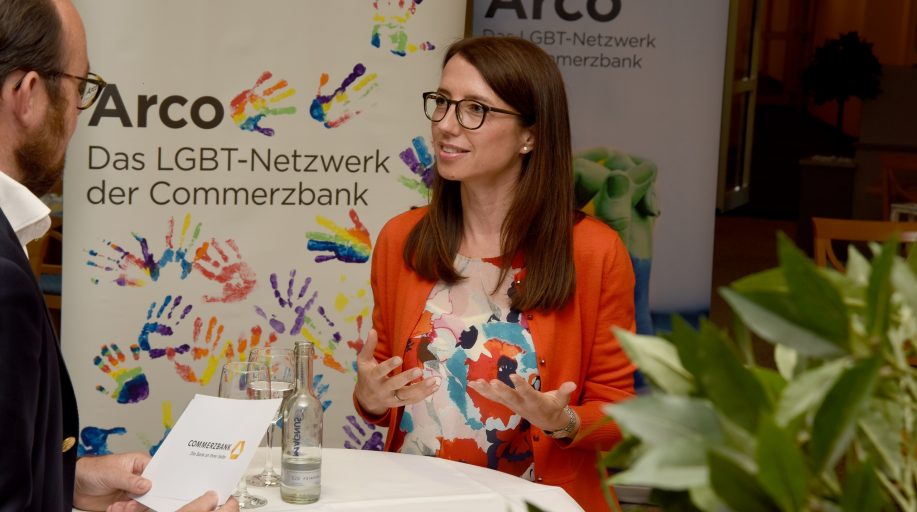
PROUT EMPLOYER Commerzbank
“It has to become normal for heterosexual and homosexual people to be able to interact in a relaxed way with one another – in both directions.”
Jenny Friese, the board member with responsibility for private and corporate clients in the East region, was born in Berlin and completed an apprenticeship in banking at Deutsche Bank. Since 1999, she has held various management roles. In 2007, she moved to Commerzbank and became head of the Berlin City-West region. Later, she headed up wealth management in Berlin and eastern Germany. Since 1 February 2015, Jenny Friese has been the board member with responsibility for supporting private, corporate and wealth management clients in the market region East.
Ms Friese, Commerzbank marked the 7th German Diversity Day in late May with numerous activities nationwide. The market region East has been particularly active in 2019 – why is that?
Jenny Friese: Because diversity is just unbelievably important to me! For four years, I have been a member of the Global Diversity Council for the Private and Corporate Clients segment (see info box) and in this capacity I would like to be a role model and offer guidance, especially on the topic of “women in management”. In particular during challenging times, it is important to understand, accept and support people, with all their differences and strengths. On Diversity Day, we invited colleagues and clients to an evening event with a very interesting panel for a stimulating discussion on the topic of “Why is a commitment to LGBT issues a success factor for companies?” The feedback showed that this first step of our “Journey to Berlin” attracted people’s attention.
“For me, „living diversity“ is a personal conviction. It enables us to perform better and makes us more creative and at the same time more human.”
You mention the “Journey to Berlin”. What is that?
Jenny Friese: Over the course of my career, it has become clear that heterogeneous teams are usually the more successful ones. It was therefore important to me to further develop this approach. However, having diversity “decreed” as part of the human resources strategy is not enough – I make the case for managers at Commerzbank taking an interest in the issue, being tolerant and open and showing this in their everyday work. This is the only way that everyone at our bank can feel comfortable and develop themselves fully. In addition, employee networks help to support such a corporate culture and to offer new perspectives through people sharing their own experiences. When the spokesman for our employee network Arco (see info box), Holger Reuschling, asked me late last year whether I would be willing to take on the role of patron championing the issue of LGBT even more strongly within senior management, my interest was quickly sparked. From the initial discussions, joint ideas were developed, which were implemented conceptually this year in the “Journey to Berlin”. The term “journey” has a symbolic meaning. We are setting off with different events in order to make the issue visible and ensure an environment that is free of discrimination.
At the events held to date, you emphasised several times that living diversity is “close to your heart”. How do you show your commitment personally?
Jenny Friese: For me, “living diversity” is a personal conviction. It enables us to perform better and makes us more creative and at the same time more human. All of this is good for our personal and professional development. As managers, we can set an example here, too, and make a difference. For that reason, I personally attend many events, raise awareness of the issue and seek dialogue with others. In my current role, I have the opportunity to lend even more weight to my messages and ensure even greater attention is paid to the topic of diversity. Prejudices are not entirely unfamiliar to me either. Therefore, I feel obliged to make the case for openness and tolerance. It has to become normal for heterosexual and homosexual people to be able to interact in a relaxed way with one another – in both directions.
What advantages does such a culture of openness bring to Commerzbank and its clients?
Jenny Friese: As a company we in fact benefit very much from this. Studies show that employees’ performance is significantly higher if they are in a working environment that is free of prejudices. When searching for the best talent, we present ourselves as an open, modern and tolerant company. It has been proven that young LGBT job seekers pay very close attention to these values when choosing an employer. In addition, teams that maintain a culture of openness tend to be willing to tread new paths and to advance innovations. Our clients are making similar observations. Purchasing decisions are often influenced by how a company is perceived. When it comes to having a welcoming culture, we know from experience that LGBT people as well as their family and friends are particularly sensitive. At the same time, the group is considered particularly lucrative in terms of its purchasing power.
“LGBT is not a private attitude, but rather a sexual orientation that a person does not choose. This mistake very often leads people in the wrong direction. It is precisely for this reason that I can only recommend that everyone comes to grips with this issue.”
Sounds encouraging. On the other hand, studies also show that, compared to other countries, young employees in Germany in particular are less likely to take the risk of coming out. They are afraid it will disadvantage them in their careers. This is the case despite all the efforts made to promote diversity. What are we still doing wrong here?
Jenny Friese: Traditional corporate structures often cannot be changed overnight. And it is important in this process to include all levels of management, to raise their awareness, educate them and break down inhibitions. The colouring of our logo during the Christopher Street Day season in 2018 and the lively discussion of this that took place on Comnet showed that, despite our culture of openness, there are still a lot of reservations and unease. The activities are often aimed solely at the LGBT target group. However, shared events and measures such as the “Journey to Berlin” help to overcome these difficulties. To do this, we also need people who have the courage to go public and thus act as role models for other colleagues.
Is one of the reasons for this perhaps that sexual orientation is seen as a private matter?
Jenny Friese: LGBT is not a private attitude, but rather a sexual orientation that a person does not choose. This mistake very often leads people in the wrong direction. It is precisely for this reason that I can only recommend that everyone comes to grips with this issue. A homosexual person who won’t come out for fear that it will damage their career will never introduce the person they love to their colleagues and will always have to lie during conversations about the weekend or holidays. It’s not about discussing sexual preferences. But while male heterosexual colleagues can have a picture of their wife on their desk and can bring her to evening events or shared team activities, this normality is denied to a homosexual colleague who is not out. However, being able to openly talk about one’s private life is part and parcel of a human and positive environment. Arco’s experiences have made it clear to me once again that, in our company, too, there are still people who are not living openly and who do not disclose their sexual orientation to colleagues and, above all, to their supervisors. Despite the culture of openness, there are still no high-level managers who, through their visibility, can resolve the supposed contradiction between being out and having a successful career.
And how do you see the future? Where will we be on the 10th Diversity Day in three years’ time?
Jenny Friese: My wish is that by then we can successfully make the case for diversity. In addition, it would be fantastic if more and more people – regardless of their sexual orientation – take an interest in one another and interact with each other in an open, tolerant manner at every level and in every direction.
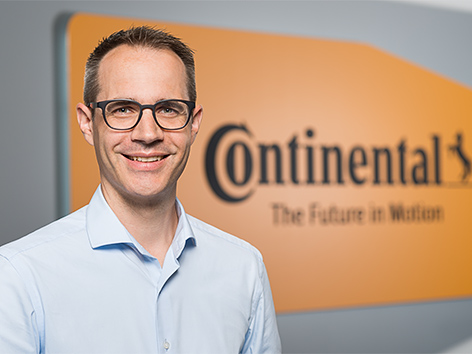
PROUT EMPLOYER CONTINENTAL
“We want to send a clearly visible signal internally and externally that the topic of equal opportunities is dear to us.”
Matthias Metzger is the current Human Resources Manager of the tyres business division at Continental in Hanover. After studying business in Stuttgart and Hamburg and completing an MBA in Newcastle, he began his career in 2002 as an international trainee at Daimler. In 2005, he moved to Continental, where he has held various management roles in HR in Germany and the USA, including Business Partner, Head of Shared Services NAFTA and Head of Corporate Talent Management & Organizational Development.
Mr Metzger, as head of HR, one of your duties is to act as a bridge between job applicants, employees and management. What experiences regarding equal opportunities for LGBT*IQ people have you had to date in your role?
Matthias Metzger: In recent years, our commitment to a diverse workforce has increased considerably, including with regard to LGBT*IQ people. For example, we have introduced a standardised testing procedure worldwide for our recruitment of salaried employees. This means that, even before the other documents are reviewed, an initial preselection takes place in which prejudices cannot influence our decisions. We want the best fit! In addition, we have held diversity workshops to raise awareness among all our managers worldwide and ask our staff for feedback on the issue of equal opportunities in our annual employee survey.
Having started its cooperation with us in 2019, Continental is one of the newer PROUT EMPLOYERS. What activities have there been to date in your company in relation to LGBT*IQ people in the workplace?
Matthias Metzger: The topic itself is not new to our company. However, in 2018, we decided to highlight it in a more proactive way. The first step was to hold regular meet-ups at our major locations in Regensburg and Hanover as well as regular participation in Sticks and Stones. For 2019, we are planning further activities, including a dialogue format with our HR board member Ariane Reinhart, Albert Kehrer and a number of LGBT*IQ colleagues, who will report on their experiences in the company.
“If, as a company, we can successfully address equal opportunities for LGBT*IQ people, which is a sensitive topic for many, we will have taken a major step towards real diversity in practice.”
What prompted you to become a PROUT EMPLOYER and what do you hope to gain from our joint cooperation?
Matthias Metzger: We want to send a clearly visible signal internally and externally that the topic of equal opportunities is dear to us. PROUT AT WORK provides a great framework for this because it increases visibility on the one hand while, on the other hand, offering different dialogue formats that allow us to learn from other companies.
You immediately agreed to an interview with us – thank you again! To what extent are equal opportunities for LGBT*IQ people a matter close to your heart?
Matthias Metzger: If, as a company, we can successfully address equal opportunities for LGBT*IQ people, which is a sensitive topic for many, we will have taken a major step towards real diversity in practice. This liberal spirit will then translate into acceptance of other lifestyles and working models, thus benefitting everyone. And it helps us to make taboo issues that are more pronounced in some countries easier to get to grips with. I firmly believe that every employee has the right to be successful – in their own unique way. And this requires a corporate culture that promotes and values diversity.
At Continental, you’ve really turned the application procedure on its head. One of the reasons you rely on diagnostics instead of CVs is that you want to promote fairness and diversity. To what extent do you think LGBTIQ applicants in particular could benefit from this?
Matthias Metzger: The replacement of our old application procedure is an initiative that many people worked on – and that also met with resistance and doubts to begin with. It has been scientifically proven than school and university grades are not a predictor of professional success, yet many human resources managers cling to them because they apparently make comparisons so easy. At Continental, we want to give all applicants a chance and ensure the best fit between the candidate and the job in each case. This can only be achieved through objective testing methods.
Mr Metzger, many thanks for talking to us!
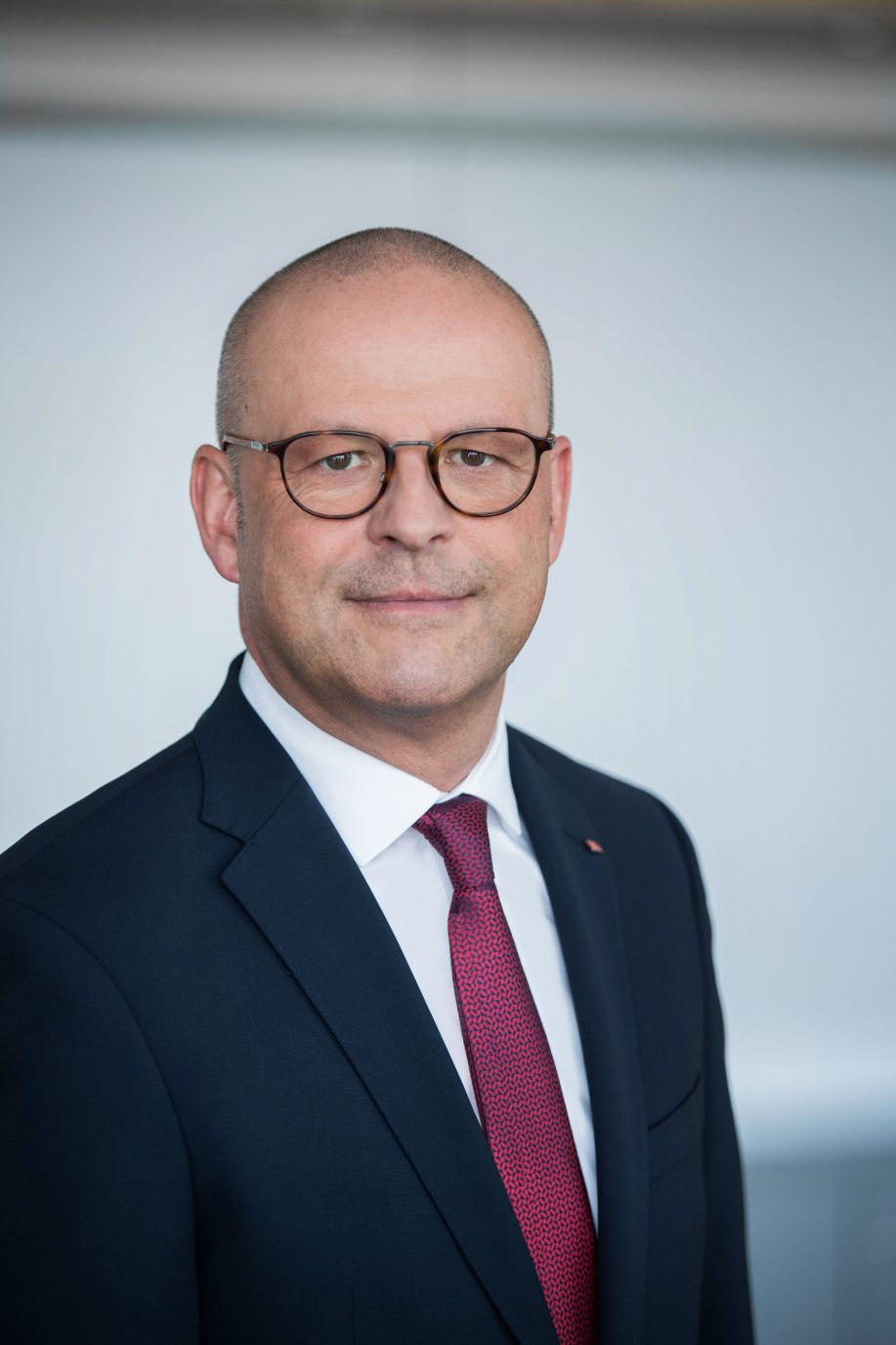
PROUT EMPLOYER Deutsche Bahn
“I am convinced that we need the potential of this diversity more than ever to develop the innovative strength that is required today and to perform better as a company.”
Martin Seiler has been the member of Deutsche Bahn AG’s management board with responsibility for human resources and legal affairs since 1 January 2018. Previously, he held a variety of HR positions at Deutsche Telekom, most recently director of human resources and industrial relations in 2015. In that role, he was responsible for 70,000 employees at Telekom Deutschland. As management spokesperson for Telekom Training, he was responsible for all trainees and cooperative education students in the group. He started his career at Deutsche Post in Baden-Baden in 1980. After working in different parts of the company, including for the German Postal Workers Union – which would later merge into ver.di, the German United Services Trade Union – where he also served as a member of the European Commission’s Social Dialogue, Martin Seiler took on various management positions at Deutsche Post in Bonn from 2003 onwards.
Mr Seiler, in January 2018 you took up your new role, Deutsche Bahn AG’s management board member responsible for HR. A strong focus of your current activities is on recruiting. To what extent do you think LGBT*IQ talent in particular could benefit from this?
Martin Seiler: It’s true that our recruitment is currently at a record level: in the past year alone, we welcomed more than 24,000 employees to the group. These are new colleagues who add to the great diversity of our workforce in all respects: age, ethnic origin, religion, gender as well as sexual orientation. We value this diversity and believe that it enriches our company. Our current employer campaign is called “Welcome, you fit in well” and represents exactly this openness. All motivated applicants are very welcome, irrespective of their sexual orientation, gender identity and ethnic origin.
What activities has Deutsche Bahn offered so far relating to LGBT*IQ in the workplace?
Martin Seiler: There a lots of examples. For instance, we were a pioneer in recognising registered partnerships: all arrangements regarding benefits for spouses of our employees (e.g. travel benefits, exemption arrangements and allowances) have also been applied to registered partners. We concluded an anti-discrimination agreement with the works council that covers both everyday cooperation and career opportunities. Our aim is to have a corporate culture in which homophobia and transphobia do not exist. That’s why I am very proud that DB employees are among Germany’s Top 100 Out Executives. We support our internal LGBT employee network “railbow” and are also active outside the company: we’ve taken part in the CSD parades for years and last year we decorated Berlin main station for the first time with flags during Pride Week.
“As a group comprising 200,000 employees in Germany alone, we have been championing equal opportunities, appreciation and respect for many years, and as the member of the management board for human resources and legal affairs, I am constantly impressed by the diversity of our workforce.”
Deutsche Bahn is part of the PROUT EMPLOYER cooperation. In your view, what are the objectives pursued by Deutsche Bahn with this cooperation?
Martin Seiler: Being a member of PROUT AT WORK enables us to provide specific and practical support to our employees if they decide to come out at work or with networking. We want to put them at ease, give them the chance to talk to each other and encourage them to tell us when something isn’t working so well. The numerous events and publications of PROUT AT WORK also enable us to expand our expertise relating to LGBTIQ issues in the workplace and spread new impetus within DB.
Your strong focus on HR and recruitment indicates that your colleagues have a special importance to you. To what extent are equal opportunities for LGBT*IQ people also a matter close to your heart?
Martin Seiler: As a group comprising 200,000 employees in Germany alone, we have been championing equal opportunities, appreciation and respect for many years, and as the member of the management board for human resources and legal affairs, I am constantly impressed by the diversity of our workforce. I am convinced that we need the potential of this diversity more than ever to develop the innovative strength that is required today and to perform better as a company. Last but not least, our customers benefit from an open, appreciative culture in which employees do not hide their sexual orientation and feel comfortable in their workplace.
Mr Seiler, many thanks for talking to us!
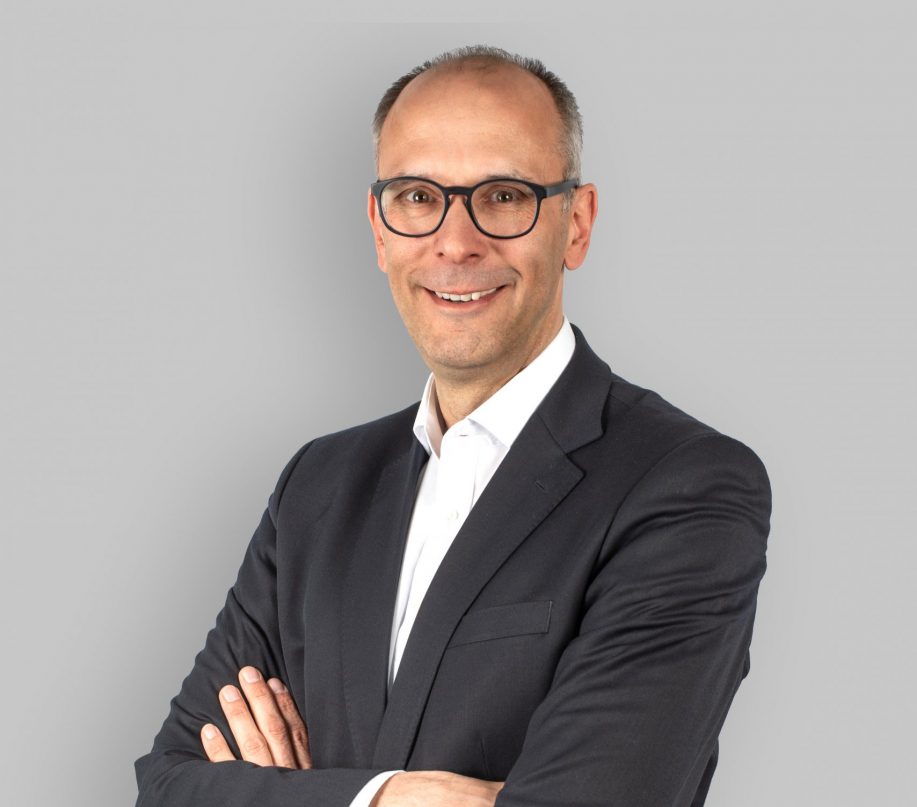
PROUT EMPLOYER Vinci Energies Deutschland
“As the Group’s German division, we also want to take a stand and to position ourselves clearly against discrimination.”
Stefan Falk, who was born in 1968, has been head of the Fire Protection Solutions Group since 2005. After completing his engineering studies, he started his career in 1994 at a large provider of fire protection solutions, which he left after six years in various management positions. In 2001, he joined Calanbau Brandschutzanlagen GmbH and was appointed as its managing director in 2004. Under his leadership, additional companies were acquired in the same market segment and consolidated in the Fire Protection Solutions Group.
On 1 January 2016, Stefan Falk was appointed as managing director of VINCI Energies Deutschland Schutzsysteme and became chairman of the management of the G+H Group.
Since 2017, he has been managing director of VINCI Energies Deutschland together with Frank Westphal.
What prompted you to become a PROUT EMPLOYER?
Stefan Falk: Our VINCI Group pursues a determined policy of equality that takes action against any form of discrimination in employment and occupation. Diversity is valued and promoted at VINCI. As the Group’s German division, we also want to take a stand and to position ourselves clearly against discrimination.
Can you tell us about an initiative regarding equal opportunities in the workplace for LGBTIQ people that has already been successful in your company?
Stefan Falk: Specifically, we supported a person on their journey to coming out. We would like to offer all employees equal opportunities and give them the chance to come out and be able to communicate openly.
“We want to demonstrate that this issue is important to us. Equal opportunities is not just a slogan, but something we commit to every day.”
How are you hoping to get specific support from PROUT AT WORK?
Stefan Falk: We would like to use the network to share experiences with other companies and to be able to continue to make progress ourselves.
What objectives are you pursuing with the PROUT EMPLOYER cooperation?
Stefan Falk: We want to demonstrate that this issue is important to us. Equal opportunities is not just a slogan, but something we commit to every day.
What activities are there at VINCI Energies Deutschland with regard to LGBT*IQ diversity?
Stefan Falk: As demonstrated by the VINCI Ethics Charter and many other measures, the subject of diversity is now an integral component of our manager training programmes. In France, VINCI has a network of more than 200 diversity officers whose main duty is to sharpen awareness and to hold diversity training in the individual divisions and companies of the group. We now want to promote and support this topic in Germany.
Why is it a matter close to your heart to support LGBT*IQ?
Stefan Falk: Because I have experienced in my private and professional life that people find it hard to talk about being different and are reserved in their working environment. Employees who are happy and feel comfortable are able to work more successfully.
Mr Falk, many thanks for talking to us!
Big Impact Initiative Award:
RBg of the Bosch Group
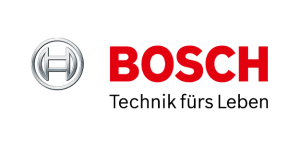
This year’s Big Impact Initiative Award was presented to the Bosch Group’s RBg network, which – over the course of the year and in particular during the 2018 Pride season – organised numerous campaigns to enhance the visibility of LGBTIQ people as a work-related topic in society. They do not confine their efforts to their own company, but also use their presence to draw attention to the activities of other companies and organisations. Never before has the topic of equal opportunities for LGBTIQ people in professional life been discussed as much as this year – and this is due in large part to this network!
Rising Star Award:
GLOW by Sandoz
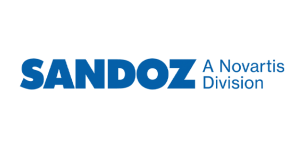
The network, which was founded in 2017, was able to gain the active support and involvement of the firm’s Head of Global HR as well as its Head of Global Diversity & Inclusion, thus creating the basis for a high level of support. Furthermore, the foundation was laid for positioning the network at a global level in close cooperation with the D&I Global Team, and the visibility of LGBTIQ people was actively increased both internally and externally! The clearly defined goals and strategic interconnection are already making the network an opinion-former, and the message to the LGBTIQ Community is:
You are welcome here, you belong to us!
Global Leader Network Award:
PRIDE at Accenture

Time and again the company has improved the situation of LGBTIQ people in Germany with the help of its strong Out Executives. By acting strategically and conducting thoughtful campaigns, the network is furthermore pursuing a global approach on all key levels of the company and is extending the boundaries of what is possible for LGBTIQ people, in particular in countries with LGBTIQ-hostile structures. In keeping with the slogan “ONE global Network, 44 Countries, ONE global policy“, they ensure that LGBTIQ diversity is dealt with in an exemplary manner within their own company and beyond.
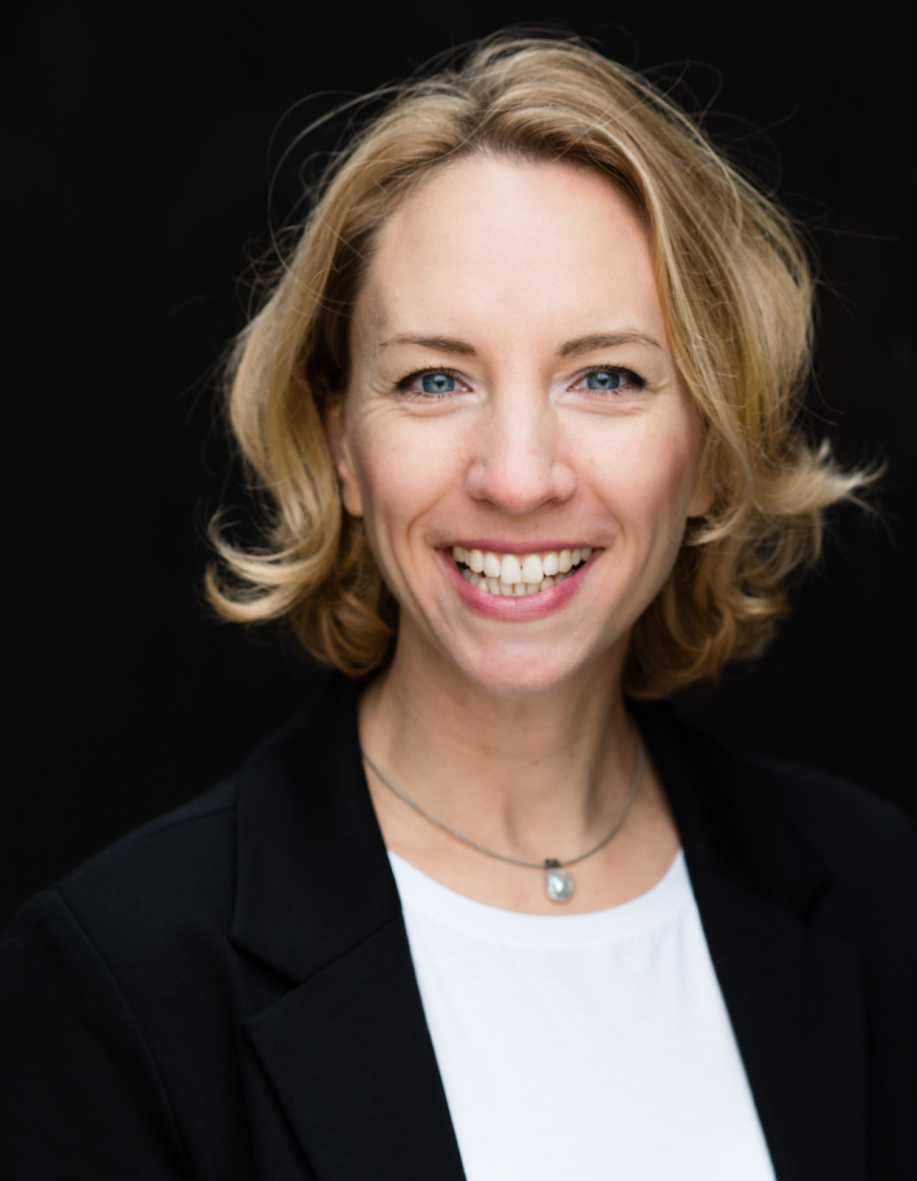
A talk with… Maren Borggräfe
“As subjective as they may be, these fears are certainly legitimate.”
Maren Borggräfe, founder and partner of autenticon – consulting in context, supports change processes as a systemic adviser, trainer and coach. The subjects closest to her heart are changing corporate culture and effective communication.
Maren, this is your third year in a row as a trainer at PROUT AT WORK’s “Should I or shouldn’t I” coming out seminar. What is your connection with LGBTIQ and coming out?
Maren Borggräfe: When I was 19, just after I moved from a small town in southern Germany to Berlin to study, I realised I can also fall in love with women – head over heels in love! As I come from a very religious home, this was utterly inconceivable to me up to that point. I viewed homosexuals as sinners who had to strive to get back on the right path. So this was quite a shock – not just for me but especially for my parents! My mother sensed very quickly that something wasn’t quite right, so I felt there was no other way than to come out to my parents relatively fast. After that, fate took its course. My parents disapproved of my “unnatural” tendencies that don’t represent God’s will and they still cannot fully accept my way of life. And that’s despite the fact that, after some twists and turns, I have been with my wife for 14 years and we have two wonderful boys. From personal experience, I know the inner and outer distress that coming out can cause. But I also experienced how taking a close look at yourself helps you mature. It gives me great strength when I fully accept and openly live this part of my personality.
“From personal experience, I know the inner and outer distress that coming out can cause.”
What experiences did you have when you came out?
Maren Borggräfe: Coming out to my family was a rocky road that began with my parents prohibiting me from talking to other people about it – even my own (younger) brothers, which was followed by times when I was completely estranged from my parents, and ended up with me realising to my surprise that support can come from unexpected places. For example, my grandparents and my aunts on my mother’s side were very supportive right from the start, and my grandma on my father’s side reacted surprisingly calmly. Other family members – like my mother – would not come to my wedding. That hurt very much at the time. What helped me was to actively embark on a journey of acceptance with the support of a professional coach – acceptance of myself as well as the people who had, and still have, difficulties accepting me as I am. It was very important for me to realise that everyone is doing their best and that I can’t bring about, let alone force, a change in other people’s attitudes. This brought me inner peace. I was able to reconcile with the rebel in me and thus prepare to get closer to people again, especially my mother.
With very few exceptions, my experiences of coming out to my friends and colleagues were very positive. The more open I am about my way of life, the more open the reactions are too. At work, I took a completely different approach to coming out. As I met my wife there while both of us were still in our probationary periods, we were very careful at first – until someone who we hadn’t actually told asked us whether we were still together. Rumours were going round that we had split up. After that, we no longer thought it necessary to beat about the bush. In fact, hardly anyone was surprised. No wonder! We were so much in love and it’s hard to keep that hidden. When I was introduced as a new joiner at a subsequent employer, I came out in front of everyone by saying that I was politically active in the LGBTI movement as a hobby. Here, too, the reactions were mostly approving and confirmative, although I could sense that I was perceived as being “different” somehow. Since becoming self-employed, I decide based on the situation whether or not to tell project partners and clients about my family. Just like any other heterosexual person relies more or less on gut feeling when choosing to reveal personal information or not.
Why do you think it’s important to come out in the workplace?
Maren Borggräfe: I’m convinced that people are at their most creative, innovative and effective when they feel comfortable in their working environment, trust their colleagues and supervisors and are allowed to show the entirety of their personality. If I’m using up part of my energy hiding some of my personality, it’s like I’m driving with the handbrake on. This is very difficult and draining. Strength that I need to put into my work is going to waste. I’m in a state of permanent inner conflict with myself, which makes it difficult to show people the real me. As humans, we have a very keen sense of when the person in front of us is not behaving coherently. This can be a problem for managers in particular. Apart from the fact that having a secret makes us susceptible to blackmail, we’re constantly walking a tightrope when we present ourselves – as is often necessary in the modern working world. The resulting stress can even make you ill and cause psychosomatic symptoms.
On the other hand, by being open about my identity, I can be a tremendous asset to an organisation and add to its diversity, which – as proved by many studies – is a prerequisite for high-performing teams. I can help shape the culture and pave the way for others to follow my example.
“I would generally like to encourage anyone out there who is still hesitant (and there are many more of them than we think!).”
What would be your advice to LGBT*IQ employees who are afraid that their colleagues will disapprove of them coming out in the workplace?
Maren Borggräfe: As subjective as they may be, these fears are certainly legitimate. Everyone must decide for themselves whether, and if so, when and how they come out. That’s a very important thing for me to say, especially if you have a situation where a company’s diversity management policy portrays coming out as being desirable. The decision to take this step is very personal and may have far-reaching consequences.
I recommend having the courage to seek support. This might be a friend who we trust, a contact person within the company, for example from the LGBTI network if there is one, or a professional coach. PROUT AT WORK regularly holds a seminar entitled “Should I or shouldn’t I? Coming out in the workplace”. Facilitated by experienced trainers, LGBs can share their stories in a protected space, reflect on their experiences of coming out so far, try out new approaches and give each other encouragement in the lead-up to coming out at work. In addition, more and more coaches offer support for the process of coming out. Like me, they frequently come from the LGBTI Community themselves and know from experience what the particular challenges are. There are online pools of LGBTI-friendly coaches that allow people expressing an interest to find a suitable person in their region.
Many people who are about to decide whether to come out in the workplace find it helpful to look at what they have previously experienced when coming out in different situations.. What did I experience? How did I feel? How did others typically react and how did I feel about that? What helped me? What strategies and behaviours helped me cope with difficult situations? Which of them might be useful to me in the current situation? Which ones would I prefer not to use this time and what would I like to do differently?
Employees should also keep themselves well informed, observe their environment and assess the situation realistically: how open is the corporate culture? How are non-business issues generally dealt with? Who is openly LGBTI in the company? What are the risks of coming out? Am I prepared to take them? How important is it to me to come out? What are the benefits? Am I prepared to change my employer if it doesn’t work out?
I would generally like to encourage anyone out there who is still hesitant (and there are many more of them than we think!). Be bold and show yourself. If you are centred and are true to yourself, unexpected paths open up. What you put out there will come back to you!
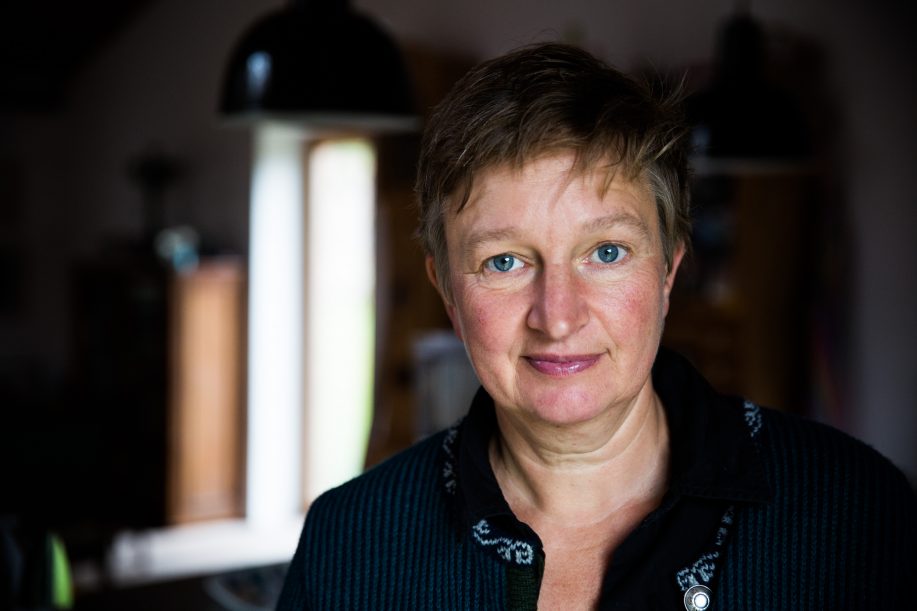
A talk with… Ise Bosch
“Dismantle what’s left of our own prejudices!”
Ise Bosch is the founder and CEO of Dreilinden gGmbH in Hamburg, an organisation that advocates for the rights of lesbian, bi, trans* and inter people, women, and girls, and a co-founder of the women’s foundation filia.die frauenstiftung.
The certified eco investment advisor publicly supports a responsible and sustainable wealth management. In 2003, she and other women founded a network for heiresses, Erbinnen-Netzwerk Pecunia e. V. Her book “Besser spenden! Ein Leitfaden für nachhaltiges Engagement” (“Donating better! A guide to sustainable commitment”) was published by C.H. Beck in 2007, and her book “Geben mit Vertrauen” (“Giving with Trust”) was released in 2018.
In 2017, Ise Bosch received the Transformative Philanthropy Award of the Astraea Lesbian Foundation for Justice in New York City. In 2018, she was awarded the German Female Founders’ Prize.
Ms Bosch, why are you and your organisation Dreilinden advocating for LGBT*IQ people worldwide?
Ise Bosch: The question really should be: Why aren’t more people and institutions advocating for them? LGBTIQ people are among the most at-risk social groups by any measure. Trans women are almost fifty times more likely to be HIV positive than the population average, for example, and hardly anyone makes more suicide attempts than young LGBTQ people. Yet Dreilinden is one of only two foundations in Germany specialising in this field and supporting it internationally. German funding for this cause worldwide – including public subsidies – amounted to a modest 3.1 Mio. Euros in 2016. This includes 684.000 Euros from Dreilinden, which is more than the Ministry for Development is dedicating to the issue.
One of the issues we will discuss at our 2018 PROUT AT WORKconference is the situation of LGBT*IQ people in Russia as well as in Africa and the Arab world. Where do you see differences in working towards equality within the various global regions? Where do you see commonalities?
Ise Bosch: Any answer to this will have to be very general, and there will always be counter examples. But we generally find that cultures with a strong religious influence tend to reject gender diversity – not just Islam, but Catholic and evangelical Christian religions as well. So-called persecutor states with severe legal discrimination up to and including the death penalty for sexual acts between men can mostly be found in formerly colonised countries. The roots of persecution stem from colonial times – their moral laws are often still those of the colonial powers! They are an enormously powerful legacy of missionary work – by us Europeans. Structural social discrimination makes life for queer people just as dangerous as legal discrimination – in particular if a culture is strongly patriarchal, like many societies in the former Eastern Bloc, notably in Russia, Ukraine and the Central Asian republics. And where a society closes itself off and becomes more nationalistic and militaristic, gender binarity is enforced, and that invariably happens at the expense of sexually and gender-diverse people.
In your view, is there a corporate responsibility for LGBT*IQ people worldwide?
Ise Bosch: Of course! For one thing, it is simply part of their responsibility for their employees – whether these belong to the “community” themselves, or their friends or relatives do, or they simply want the freedom to grow as individuals. Companies obviously have an interest in their employees’ wellbeing, not just because productivity will suffer otherwise but simply because of their responsibility as employers. And that means they also have an interest in more liberal laws. The fact that some employees cannot be posted to Singapore because of its discriminating laws is unacceptable. But as long as these laws and social taboos exist, these employees need points of contacts within their companies who can advise them confidentially. To do this, companies must make their support for diversity and their efforts to gain the required expertise very clear. After all, it’s not just about the small number of gay and lesbian people or the even smaller number of trans and inter people, it’s about development opportunities for everyone. Sociology now knows that significantly more people change their sexual orientation during their lifetime than previously assumed.
In a 2016 study, the Center for Talent Innovation stated that companies should not underestimate the influence of their economic power in the struggle for legal equal opportunities for LGBT*IQ people. Where do you see concrete scope for action for globally operating companies?
Ise Bosch: In at least two respects: First of all, they can offer non-discriminatory jobs, and, in case of a conflict, protection. Secondly, they have very special access to local administrations, governments etc. Not just for formal interventions – via their connections as well. Powerful “expatriates” in particular meet people with all kinds of influence and can, or could, provide assistance like almost nobody else. Not just in emergency situations, obviously, but with regards to broadening horizons as well, through their more liberal attitude. Homophobia and transphobia have a strong component of plain ignorance – people aren’t familiar with the issue, they have questions, but they don’t ask them openly because they feel insecure and are afraid of some kind of “contagion”. We have to create situations that allow legitimate questions to be asked, and we need to answer them. Naturally, a face-to-face conversation and a confidential setting are the best way to do this. People with a certain standing are also in a position to change biographies for the better, even if they aren’t part of the “community”.
We live in ambivalent times. In the fourth edition of your Rainbow Philanthropy, you described both a growing understanding that discrimination against LGBT*IQ people is unjust and the fact that their situation is becoming no less, if not more, precarious. What can each of us do individually to make the world a better place for LGBT*IQ people?
Ise Bosch: Dismantle what’s left of our own prejudices! Dare to ask our own critical questions: At what point do I get embarrassed, where do my fears lie? And then speak out publicly regardless. And build real friendships. Personal friendships are an irreplaceable asset in being able to stand up for people who are different with regards to gender or sexuality. And much of it is transferrable, it applies to China just as much as it does to Chemnitz.
What do you think the future holds for the equality of LGBT*IQ human rights?
Ise Bosch: As far as this issue is concerned, globalisation is particularly powerful, and certainly irreversible. People have always expressed themselves diversely with regards to gender – but now it gets captured everywhere across our media and thus becomes visible. I expect a back and forth battle for many, many years to come, between those who feel threatened and fight this diversity, and young people who simply are who they are. However, their tools have become more powerful. I believe that in the not too distant future, “community” and help will be accessible for all gender-diverse people in some way. Even if our democratic systems are currently becoming increasingly precarious – this medial, lived diversity won’t go away. For individuals, this will be a massive step forward compared to now where most young gender-diverse people still believe they are the only ones with this “defect”.
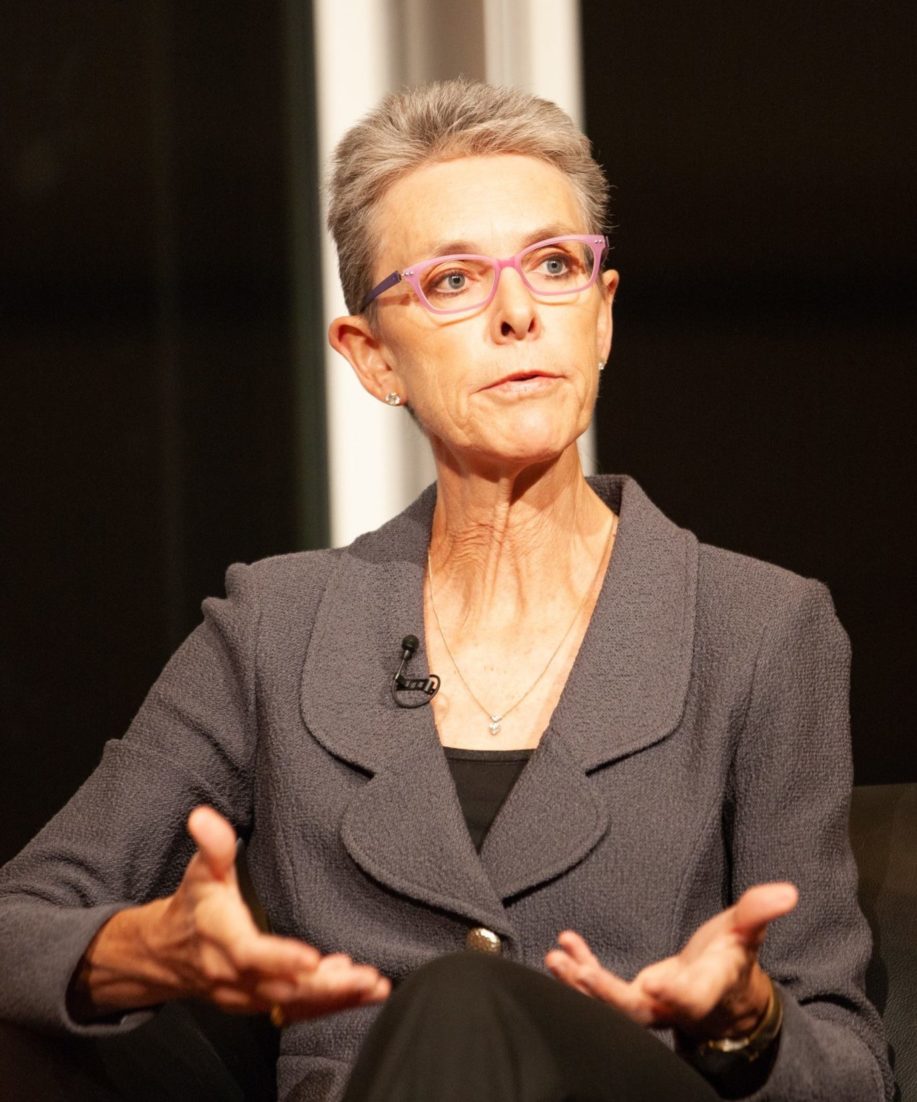
Beth Brooke-Marciniak
“My life changed for the better; from black/white to colourful in an instant. After 52 years.”
For the third time in a row now, senior executives of major German and international commercial enterprises and institutions had accepted the invitation of the PROUT AT WORK network and come to the financial metropolis of Frankfurt. In a casual atmosphere, they exchanged their views about opportunities and pathways to a more open, diverse and discrimination-free workplace at the DINNER BEYOND BUSINESS over a first-class meal.<br>Among them were representatives of Continental, BASF, Vattenfall, Coca Cola, Thyssenkrupp, the European Central Bank and SAP. This year, PROUT AT WORK managed to bring Beth Brooke-Marciniak on board as a keynote speaker and, framed by the spectacular view from Germany’s tallest skyscraper, engage one of the 100 most influential women in the world in an informal personal conversation that allowed for many perceptive insights and powerful statements.
“Courageous.” That’s the word that leaps to mind when listening to Beth Brooke-Marciniak, Global Vice President Public Policy and board member at global consulting firm EY (Ernst & Young), during a fireside chat with PROUT AT WORK chairperson Albert Kehrer.
For the third time in a row now, senior executives of major German and international commercial enterprises and institutions had accepted the invitation of the PROUT AT WORK network and come to the financial metropolis of Frankfurt. In a casual atmosphere, they exchanged their views about opportunities and pathways to a more open, diverse and discrimination-free workplace at the DINNER BEYOND BUSINESS over a first-class meal.
Among them were representatives of Continental, BASF, Vattenfall, Coca Cola, Thyssenkrupp, the European Central Bank and SAP.
This year, PROUT AT WORK managed to bring Beth Brooke-Marciniak on board as a keynote speaker and, framed by the spectacular view from Germany’s tallest skyscraper, engage one of the 100 most influential women in the world in an informal personal conversation that allowed for many perceptive insights and powerful statements.
Role models – “If not me, who?”
As Beth Brooke-Marciniak relates how she had not been open about her sexual orientation for most of her life, the audience in the room are quietly thinking, “Pretty courageous.”
For in February 2011, Brooke-Marciniak participated in the “It Gets Better” video campaign that aims to encourage LGBT*IQ teenagers, and spontaneously decided to come out as a lesbian woman in front of the rolling camera.
“What would I say in this video if I was being truly honest,” she had asked herself the previous evening. “I had a message to deliver that I knew was important.”
She and her then-partner had both assumed that coming out would mean the end of her career. However, the reactions to her sensational openness were the exact opposite. “My life changed for the better; from black/white to colourful in an instant. After 52 years.”
But not just that. Her candour also changed how the business world thinks about diversity.
“Our executive level was very proud of me, I received calls and e-mails from young people and their parents and even standing ovations at a subsequent public appearance, which moved me to tears.”
With her spontaneous coming out, she had changed more in one moment than ever before in her life, role model Brooke-Marciniak explains. “I considered it my job and my duty. Who was supposed to do it if not me?”
Business case – “The market imperative”
Introducing the second topic of this year’s dinner talk, Albert Kehrer suggests that attracting the best talent is one aspect of the business-case perspective on creating an LGBT*IQ-positive working environment, and the EY executive adds: “It’s about the market imperative. We need to be as diverse as our customers are. Whether it concerns functionality, quality or innovation – that way, we’re better everywhere.”
“Studies show that corporations that focus on the importance of LGBT*IQ employees are also well positioned with regards to all other aspects of inclusion and diversity, for example in promoting women.”
Kehrer mentions that the difficulty of assessing the effects of measures that address the concerns of lesbian, gay and transgender people within a business presents a significant hurdle.
“I know,” Brooke-Marciniak replies, “in most countries, it’s not possible to identify as LGBT*IQ within a corporation.” She adds that this makes it difficult to evaluate the effect of an LGBT*IQ-positive corporate policy. “But it doesn’t matter. Because we know it’s an added value.”
Having said that, she believes that forgoing such policies because their value is not quantifiable is just an excuse.
In response to Kehrer’s pointed question whether LGBT*IQ issues should really be given such high priority within corporations, Brooke-Marciniak again responds decisively: “Studies show that corporations that focus on the importance of LGBT*IQ employees are also well positioned with regards to all other aspects of inclusion and diversity, for example in promoting women.”
Allies – “Changing the world, providing safety”
Darkness has fallen, and against the background of the lights of the Frankfurt skyline, Kehrer opens the last third of the fireside chat with the question of why it’s important for a corporation to be an LBGT*IQ ally. After all, in Great Britain as well as in the US, EY specifically supports this group of employees.
“Because we have values,” Brooke-Marciniak replies without hesitation. “All of us are active across the globe. But we have no influence on the laws of individual countries. Many of them are going in the wrong direction, even backwards, and populism is spreading. Our footprints can change the world.”
In response to Kehrer’s question how individuals in corporations can become allies of their LGBT*IQ colleagues, EY board member Brooke-Marciniak points out a host of options for getting involved: being curious and unafraid, for example. After all, she says, it’s not always about specific lesbian-gay-trans* issues but about a fundamental understanding. “One day, it could affect you, too.”
She adds that just recently, at the World Economic Forum in Davos, she had a private chat with a grateful CEO whose daughter came out as homosexual only a short while ago. Having discussed the issue previously had helped him immensely in this situation.
And, she adds, there’s also the “Wow, even him” effect when top management personalities publicly declare themselves allies of LGBT*IQ people within their corporations, facilitating a significant increase in visibility for those employees that HR departments or LGBT*IQ groups themselves could not achieve in this form.
Another important point, she says, is signalling to employees who have come out that you’re ready to help, giving them time but being at their side if needed. “Some people prefer to go back into their shell when they have the impression that they can’t trust their boss and aren’t sure whether his or her openness really means they’re safe.”
Accordingly, 70 percent of employees who haven’t come out leave a corporation over the short or long term, which is why it’s so important to start that conversation and find out what is still standing between them and their coming out.
“Above all, though, it’s important to be aware of conversations that should no longer take place the way they still do, and to say something, because people who haven’t come out yet will definitely take notice,” Beth Brooke-Marciniak concludes the conversation.
Fireplace-Chat with Beth Brooke-Marciniak:
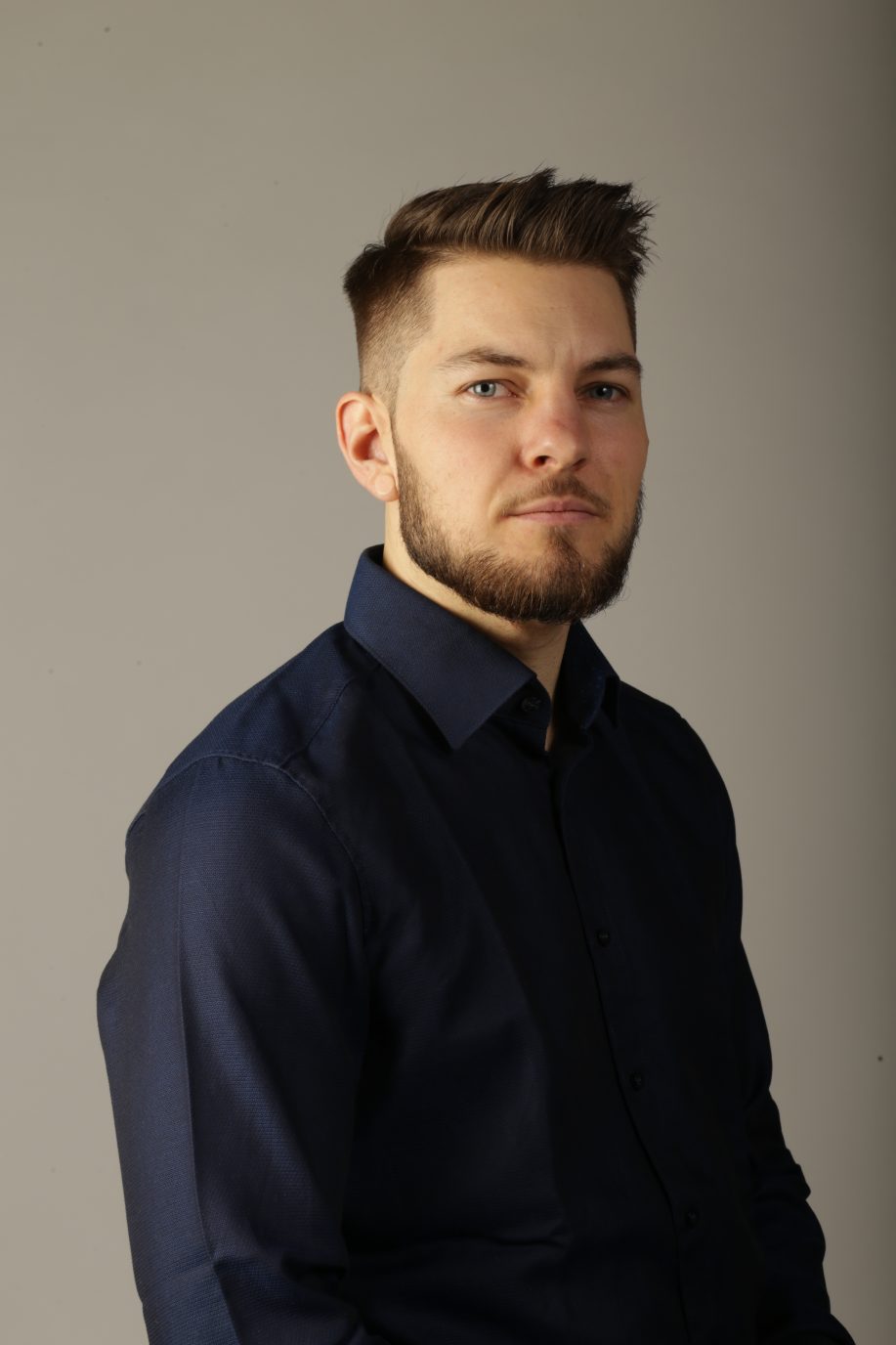
A talk with… Joschua Thuir
Trans*parency at work? Walking the line
A heterosexual male in private, a homosexual woman in the workplace – confused? Meet Joschua – a police officer who felt compelled to lead a double life for five years of his career. This is a story about professional transparency, courage and the need for progress in society and the law.
Joschua Thuir, 27, works as a police officer for the federal police force at Frankfurt Airport, mostly at entry/exit checks. Joschua’s duties also include patrolling the public areas of the terminals. In his free time, Joschua is involved with networks such as Deutsche Gesellschaft für Transidentität und Intersexualität e.V. (dgti) (German Association for Trans Identity and Intersex People), Verband lesbischer und schwuler Polizeibediensteter Deutschland e.V. (VelsPol) (Association of Lesbian and Gay Police Officers in Germany) and the police union Gewerkschaft der Polizei (GdP). Via these networks, he supports victims of homo- or transphobia, shares his experiences and trains colleagues on how to deal with transgender and intersex people in a legally compliant manner.
Why are you so heavily involved in the LGBT*IQ Community?
Joschua Thuir: For several reasons, one of which is my personal history. When I was 19 and still in training, I realised that I could no longer identify with the female gender role assigned to me at birth. However, I didn’t come out as a trans man at work until I was 25, because I feared that it would cost me my career if I disclosed my true identity before becoming a state official with lifetime job security and privileges.
Being a trans person might be an obstacle to becoming a state official?
Joschua Thuir: Indirectly, yes. To join the police force, you have to meet certain health criteria that are laid down in the official police instructions PDV300. You’re checked to see whether you meet these criteria when you’re hired and when your probationary period ends. PDV300 distinguishes between men and women. When I was originally hired – as a woman – I met all the criteria for female officers, but later I didn’t meet the ones for male officers. For example, men must have at least one functioning testis, which is not possible for a trans man according to current medical technology.
So, coming out during my training and probationary period was not an option for me. The exclusion criteria forced me to lead a double life in order to continue my career: for five years, I was a heterosexual man in private, but I went to work as a homosexual woman.
“I constantly feared being revealed as someone who was living a lie.”
Did hiding your true identity like this have an impact on your work?
Joschua Thuir: Absolutely. I constantly feared being revealed as someone who was living a lie. My efforts to pass for a woman also required an incredible amount of organisation, concentration and quick-wittedness. For instance, I had to react to female pronouns, although I didn’t feel that I was being addressed. In addition, there are some gender-specific duties at the police. Two concrete examples: I was regularly required to frisk women because of the relevant formal requirements which only permit frisking by people of the same gender (unless the situation is life-threatening). At passport control, I also frequently compared photographs of women not wearing a veil with women wearing a veil. This occasionally led to misunderstandings because of my rather masculine appearance.
In what other areas do you think your profession comes into contact with issues of gender identity or sexual orientation?
Joschua Thuir: As a police officer, I work with the law. However, our German Basic Law only recognises two genders and states that “Men and women shall have equal rights.” Police forms are thus based on a binary gender norm and are yet to include a third gender option. However, this is set to change by the end of the year, when a third gender is to be enshrined in the law.
A growing number of transgender or intersex people carry a supplemental ID. This ID card can be presented as an additional document in situations where someone is searched or asked for identification. It clarifies the legal situation and the identity of the person. It’s an aid to the police, so to speak. However, this ID card is not yet widely known.
Other points of contact can be found in asylum law. Persecution of homosexual and transgender people has now become a ground for asylum or refugee protection. Under the asylum procedure, these people must provide the Federal Office for Migration and Refugees – which processes and decides on their application – with proof not only of their persecution, but also of their sexual orientation or gender identity. In my day-to-day work, I’ve encountered people who have expressed their wish for asylum to me for these reasons.
What did you experience in your professional environment after coming out as a lesbian?
Joschua Thuir: Actually, I came out several times. When I was in training, I came out as supposedly lesbian and experienced some negative reactions from my fellow trainees. There were some verbal attacks like calling me “butch”, and non-verbal bullying like ridiculing my appearance in the communal showers. I also felt that my supervisors at the time had left me to deal with these day-to-day problems on my own. Once I was certain that I identify as a man, I didn’t open up to anyone in training any more. That’s a time I don’t want to remember. Unfortunately, I didn’t have the courage or strength to go to the next level of authority, nor did I have the relevant information, for example on VelsPol, the LGBT network in the German police, judiciary and customs authorities, to find a different way to ask for help.
“After I came out, colleagues from the continuing education team were very interested in using my expertise.”
And what did you experience when you came out as a trans man?
Joschua Thuir: When I came out as a trans man at the federal police force after those five years I mentioned before, the reactions were a lot more positive. But here, too, a few colleagues proved to be lacking social skills.
The next step must come from those higher up. Unfortunately, my attempts to make this point so far have been in vain. So I have to put up with colleagues who ignore me even if we are on patrol together and should have absolute trust in one another. I had to learn to deal with this.
After I came out, colleagues from the continuing education team were very interested in using my expertise. They asked me and another transgender colleague to prepare a talk for the aviation security training. To do so, I was even sent to Berlin for 2 days.
How did your supervisors react when you came out?
Joschua Thuir: The reactions of my supervisors at the time were very mixed, but by and large they ranged from positive to awkward. I asked a police trainer to disclose my identity to my direct supervisors and to ask them to forward this information to others in the command structures. I chose this approach to give everyone the opportunity to take a look at the German Transsexuals Act so that they could familiarise themselves with the topic before talking to me. Unfortunately, there was still confusion on all sides which couldn’t always be clarified or resolved.
As is so often the case, each individual has an important role to play in such situations. Committed supervisors will not tolerate discrimination. Others are less (pro)active or even shy away from conflict.
“Lastly, I’d like LGBTIQ people not to feel alone either during training or later in their job and I’d like the fear of coming out in this organisation to become a thing of the past.”
What would you like to see in future in terms of the visibility of LGBT*IQ issues in your workplace?
Joschua Thuir: I’d like to see LGBTIQ issues included in vocational training and continuing professional development because incorrect behaviour often stems from ignorance and unease. At the least, police officers should be made aware of exceptions so that when they’re dealing with people who are not heterosexual or cis-gender¹, i.e. 10% of the population, they can also fulfil their duties confidently and in a legally compliant manner.
Additionally, I’d like the federal police force – in accordance with its guiding principles – to take a stand as regards LGBTIQ employees, provide more education on this topic and have the Federal Ministry of the Interior revise PDV 300 such that trans and inter people can no longer be automatically disqualified from service in the police force. Lastly, I’d like LGBTIQ people not to feel alone either during training or later in their job and I’d like the fear of coming out in this organisation to become a thing of the past. To achieve these goals, the federal police force needs to increase the number of designated contact persons and broaden their target group by extending it from LG to LGBTIQ, as has already happened in some state police forces. The role of contact person shouldn’t just be something that is done on the side and doesn’t involve any obligations. It should be used proactively to increase awareness and counter discrimination both within and outside the organisation. Initial steps in the right direction have already been taken – I would be happy to continue this journey together, with the support of our organisation.
¹This term refers to people whose gender identity matches the sex assigned to them when they were born.
